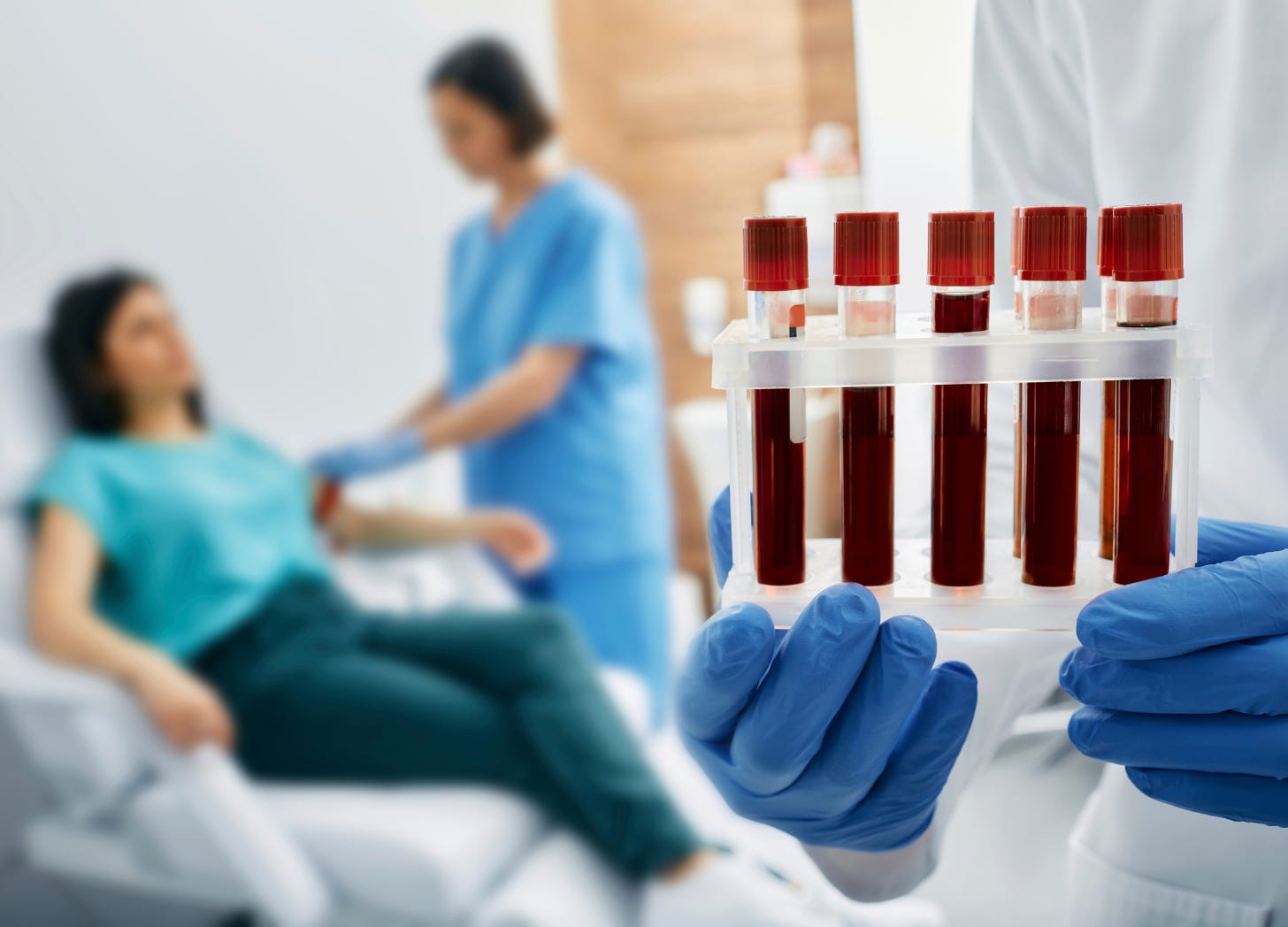When Hormone Tests Promise Answers They Can’t Deliver
Why costly hormone blood tests can’t deliver answers about perimenopause — and what women can rely on instead.
I need to say this plainly: if you’re thinking about buying a midlife hormone panel, don’t. And if you already did, don’t beat yourself up.
Of course you wanted answers. Of course you wanted relief. Hot flashes, brain fog, fatigue, irritability — these symptoms can upend your life and leave you desperate for clarity. Wellness providers know this. Social media knows this. And right now, a booming business is cashing in on women’s uncertainty about midlife.
Across my feeds, I see ads and influencers promising that costly blood tests will reveal “what’s really going on” with your hormones. The message is seductive: test, decode, solve. But science says otherwise.
Why the tests don’t work
Just last week, The BMJ — one of the world’s most respected peer-reviewed medical journals — published an editorial titled “Menopause misinformation is harming care.” It was blunt: these tests cannot diagnose perimenopause or guide treatment decisions.
Here’s why:
Hormone chaos, not deficiency. During perimenopause, estrogen and progesterone levels swing wildly from very high to very low. A single blood test is just a snapshot in that storm.
No universal target level. There’s no right estrogen or progesterone number that determines if you’re in perimenopause, or what dose of therapy you need. One woman’s comfort level may be another’s misery.
Testosterone doesn’t help either. Levels decline gradually with age but don’t define the menopausal transition — and there’s no cut-off for too low.
Labs can’t standardize it. Even when the same hormone is measured, results vary by lab, by time of day, by method of collection. That’s why guidelines around the world advise against using blood tests to confirm perimenopause.
The editorial points to best-practice guidance from:
The British Menopause Society (BMS) — diagnosis should be based on symptoms.
NICE (UK National Institute for Health and Care Excellence) — hormone testing is not recommended for women over 45 with typical symptoms.
The American College of Obstetricians and Gynecologists (ACOG) — blood tests are unreliable in perimenopause and should not be used for diagnosis.
In short: your symptoms tell the story, not your lab work.
Why women get pulled in
None of this is your fault. When your body feels unpredictable, the promise of a neat test result is magnetic. You want something objective, something that validates what you feel.
But this is where the knowledge gap becomes dangerous. What women don’t know — because no one bothered to teach us — becomes a gold mine for money-grubbing predators. Instead of clarity, women get empty reports, lighter wallets, and no real help.
What to rely on instead
If you’re in or near menopause and searching for answers, here are trustworthy resources and next steps:
The Menopause Society (formerly NAMS): Clear, evidence-based information for patients and professionals.
Jean Hailes Foundation (Australia): Excellent patient education sheets on perimenopause, menopause, and treatment options.
NHS (UK): Practical guidance on symptoms and treatment.
NIH Office of Research on Women’s Health (US): Research-backed information and updates on women’s health.
And remember:
Blood tests can be useful to rule out other conditions that mimic menopause symptoms — like thyroid disease or iron deficiency.
But when it comes to diagnosing and managing perimenopause, your lived experience matters more than any lab slip.
The bottom line:
Don’t feel foolish if you’ve already been through the hormone test mill. You were searching for answers the system refuses to give clearly. But don’t let the business of false promises drain more time, money, or hope.
Perimenopause is real. Your symptoms are real. And you deserve care grounded in science, not exploitation.


